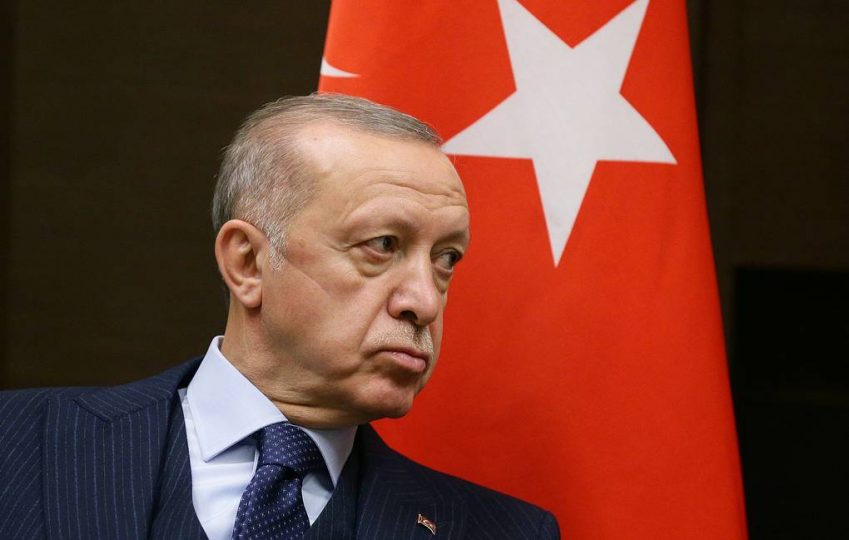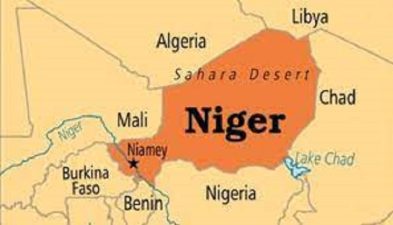Izvestia: EU to suffer from oil embargo against Russia
The European Union will be the first to suffer from even a scaled-down version of an oil embargo against Russia, said experts interviewed by Izvestia. The EU’s draft sixth package of measures against Russia, which includes an oil import ban, was put forward on May 4 but the position of Hungary and some other EU members kept preventing the union from reaching a consensus.
Slovak European Parliament member Milan Uhrik told the newspaper that it was time to remove the oil embargo issue from the EU’s agenda because all discussions had already become counterproductive. According to the legislator, the situation is only exposing internal divisions within the EU, while there seem to be no options to settle the disputes.
Meanwhile, European Council President Charles Michel has announced on Twitter that EU nations agreed to ban two-thirds of Russian oil imports.
National Energy Security Fund expert Igor Yushkov believes that a lighter version of an oil embargo will make Russia diversify its supplies, which is what the country is already doing. “It won’t be about an immediate ban on Russian energy. Russia will need to find new markets during a transitional period. We are increasing oil supplies to India, China and Southeast Asia, pushing out other producers, namely Middle Eastern and African countries,” the expert noted.
At the same time, in his words, European nations currently seek to buy more Russian oil as it is being offered with a discount of about 30%. According to Yushkov, an oil embargo will hardly damage the Russian economy the way that Brussels expects it to but it will definitely increase market shortages and, consequently, push prices higher. “Today, no one in the world can raise production to a level to replace Russian oil so the question is whether such sanctions are appropriate,” the expert emphasized.
Vedomosti: Unprecedented number of Chinese warplanes enter Taiwan’s air defense identification zone
On May 30, thirty warplanes from the Chinese People’s Liberation Army entered Taiwan’s air defense identification zone, the Taiwanese Ministry of National Defense said on Twitter, adding that the mission involved such a large number of aircraft for the first time, Vedomosti writes.
In fact, the “identification zone” where aircraft are expected to notify a host party upon entering is legally void, Director of the Center for Comprehensive European and International Studies at the Higher School of Economics Vasily Kashin pointed out. It doesn’t create any obligations and China itself has a similar problem as foreign warplanes keep ignoring a zone like this that Beijing established over the East China Sea. Moreover, Taiwan’s air defense identification zone partially covers mainland China.
This is why, according to the expert, it’s not the zone itself that matters but the fact that the Chinese air and naval forces keep holding drills close to Taiwan’s airspace in a bid to dry up the limited resources of the Taiwanese air forces who have to scramble aircraft every time, while Taiwan has fewer planes than China. And finally, it creates a situation where such actions may turn into a real attack, Kashin explains.
China has indeed been increasingly demonstrating its activities in that area amid a growing standoff with the United States, said Russian International Affairs Council expert Alexander Yermakov. This time, it may be a reaction to a statement that US President Joe Bided made last week, pledging military support for Taiwan, though White House officials later corrected what their boss had said, which was not a first for them, the analyst added.
Kommersant: Turkey gearing up for another operation in Syria
The Turkish army is ready to launch another military operation in Syria, the country’s media said, citing Defense Minister Hulusi Akar. However, media reports make it clear that no decision has been made yet and much will depend on agreements between Ankara and Moscow. Experts point out that Turkey’s statements about plans to set up a safety zone along its southern borders look like some sort of bargaining ploy targeting NATO’s future expansion, Kommersant notes.
Ankara has brought up the issue of another special operation citing a surge in the activities of Kurdish militants. Last week, President Recep Tayyip Erdogan said that Turkey intended to complete the creation of a 30-kilometer-wide security zone along its southern borders. The start of the operation may directly violate agreements between Moscow and Ankara but experts don’t rule out that Russia and Turkey will find a compromise.
Erdogan emphasized that Turkey wasn’t going to ask anyone for permission to launch such a military operation. However, his comments were first and foremost aimed at the United States rather than Russia. The Turkish media stressed that Ankara may start the operation in Syria in order to test whether Washington and EU capitals are ready for dialogue. Erdogan’s threats of another operation came amid discussions by NATO seeking to admit Sweden and Finland into the US-led military bloc, to which Ankara had opposed, saying that the two countries supported “Kurdish terrorists.”
“From Turkey’s point of view, the seizure of Ayn al-Arab looks the most promising as it will make it possible to unite the zones that Ankara took under control during its previous operations in northern Syria, dubbed Euphrates Shield and Peace Spring,” Russian International Affairs Council expert Kirill Semenov pointed out. “Manbij, on the contrary, may become the subject of a compromise between Moscow and Ankara. It is crucial for Russia because the M4 highway, which connects Latakia and Aleppo with Syria’s eastern border, passes through the city,” the analyst noted.
Rossiyskaya Gazeta: Ukraine presses Europe to halt Nord Stream 1 gas flows
Europe should stop gas flows through the Nord Stream 1 pipeline and receive all of its Russian gas imports via Ukraine, head of Ukraine’s Gas Transmission System Operator Sergey Makogon said. A letter on the matter has been sent to the German Ministry of Economics and the Federal Network Agency because Germany is the one who can make a decision to stop the pipeline’s operation, Rossiyskaya Gazeta writes.
Kiev’s reasons are clear as it seeks to earn more money by increasing gas transit and make the EU dependent on Ukraine by getting hold of the energy security of most European countries. In addition, Ukraine’s gas transmission system is extremely worn out and a rise in transit can save it from collapsing.
The most important thing for EU nations is to receive their contractual amounts of gas regardless of the transit route, Executive Director of the Capital Market Department at Univer Capital Artem Tuzov emphasized. Logic suggests that Europe should reduce gas transit through Ukraine and boost supplies via alternative gas pipelines. It’s hard to predict when gas supplies through Ukraine will stop but such risks are growing, the expert noted.
According to Deputy Director General of Russia’s National Energy Security Fund Alexey Grivach, attempts to halt gas transit via Nord Stream 1 would end gas supplies to Europe instead of redirecting them through Ukraine’s gas transmission system. Given that European countries have been avoiding even discussions of a gas embargo and have largely moved to pay for gas in rubles, in the near future, they won’t take any steps that would disrupt gas supplies. In the meantime, scenarios involving a redirection of supplies have another highly negative aspect. Rising risks related to gas supplies will immediately affect gas market prices, experts point out.
Kommersant: Ruble overcomes short-term decline
Last week’s campaign for the fall of Russia’s national currency has not continued so far. Market participants don’t rule out that the dollar may briefly return to the 60 ruble level in the coming days, Kommersant writes.
The activities of foreign companies who sought to convert euros into rubles to pay for Russian gas helped the ruble restore its position, PSB Chief Analyst Yegor Zhilnikov said.
The ruble was also supported by rising oil prices. According to Head of the Analysis Unit at Zenit Bank Vladimir Yevstifeyev, the ruble has been sensitive to changes in oil prices amid a sharp decline in Russian imports. “High oil prices guarantee a high level of foreign currency supply from exporters, even with eased regulations,” Yevstifeyev noted. “A return to the recent record lows in terms of the dollar’s exchange rate is unlikely but a movement towards the 60 ruble per dollar mark looks possible,” the analyst added.
Meanwhile, the role of private investors may increase at the beginning of the summer, putting pressure on the rate of the Russian currency. “The term of the three-month ruble deposits with an interest rate of 20% per year, which commercial banks offered in March, will expire in June,” said Head of Global Research at Otkritie Investment Mikhail Shulgin. In his view, the release of ruble liquidity amid expectations of a further reduction in the key interest rate may push people to purchase foreign currency.
TASS is not responsible for the material quoted in these press reviews.
SOURCE: TASS




